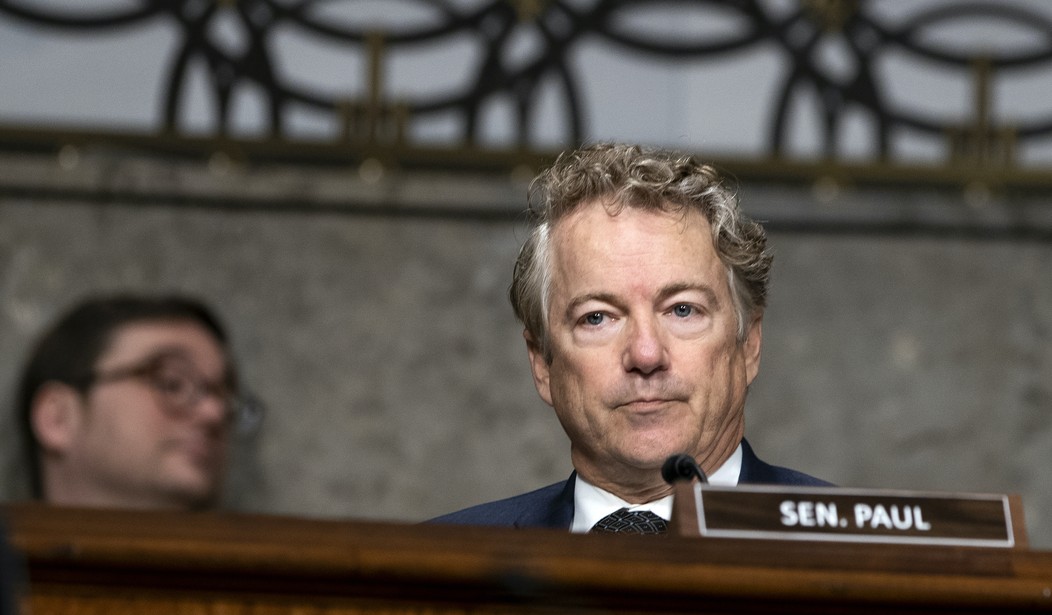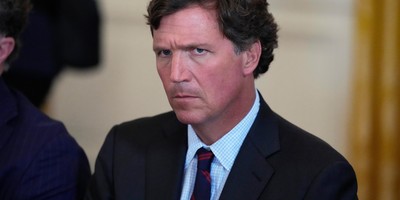Sen. Rand Paul has made his thoughts about the Big, Beautiful Bill clear. While he said he might be able to swallow voting for it if Senate leadership took the debt ceiling increase out of it, he won’t budge otherwise.
“If they were to take the debt ceiling off of it and have the tax reductions and spending reductions, I’d probably vote for that,” he said last month. “The spending reductions are imperfect, and I think wimpy, but I’d still vote for the package if I didn’t have to vote to raise the debt ceiling.”
In addition to President Trump’s heated response to the Kentucky Republican’s opposition to the BBB, White House Deputy Chief of Staff Stephen Miller addressed Paul directly.
"The score Rand is citing is the size of the tax cut," Miller said, responding to a recent clip of Paul on Fox Business. "The bill slashes spending almost $2 trillion. Also, why doesn’t Rand ever fight this hard to deport illegals?"
The score Rand is citing is the size of the tax cut. The bill slashes spending almost $2 trillion. Also, why doesn’t Rand ever fight this hard to deport illegals? https://t.co/RNsrThguje
— Stephen Miller (@StephenM) June 4, 2025
Miller previously addressed some false claims about the BBB:
Recommended
The first is that it doesn’t “codify the DOGE cuts.” A reconciliation bill, which is a budget bill that passes with 50 votes, is limited by senate rules to “mandatory” spending only — eg Medicaid and Food Stamps. The senate rules prevent it from cutting “discretionary” spending — eg the Department of Education or federal grants. The DOGE cuts are overwhelmingly discretionary, not mandatory. The bill saves more than 1.6 TRILLION in mandatory spending, including the largest-ever welfare reform. A remarkable achievement.
I’ve also seen claims the bill increases the deficit. This lie is based on a CBO accounting gimmick. Income tax rates from the 2017 tax cut are set to expire in September. They were always planned to be permanent. CBO says maintaining *current* rates adds to the deficit, but by definition leaving these income tax rates unchanged cannot add one penny to the deficit. The bill’s spending cuts REDUCE the deficit against the current law baseline, which is the only correct baseline to use.
Another fantastically false claim is that the bill spends trillions of dollars. This is just completely invented out of whole cloth. This is not a ten year budget bill—it doesn’t “fund” almost any operations of government, which are funded in the annual budget bills (which this is not). In other words, if this bill passed, but the annual budget bill did not, there would be no government funding. Under the math that critics are using, if we passed a one paragraph reconciliation bill that cut simply 50 billion in food stamp spending, they would say the bill “added” trillions in spending and debt because they are counting ALL the projected federal spending that exists entirely outside the scope of this legislation, which is of course preposterous. The only funding in the bill is for the President’s border and defense priorities, while enacting a net spending cut of over 1.6 TRILLION dollars.
The bill has two fiscal components: a massive tax cut and a massive spending cut.
I’ve seen a few claims making the rounds on the Big Beautiful Bill that require correction.
— Stephen Miller (@StephenM) May 25, 2025
The first is that it doesn’t “codify the DOGE cuts.” A reconciliation bill, which is a budget bill that passes with 50 votes, is limited by senate rules to “mandatory” spending only — eg…

























